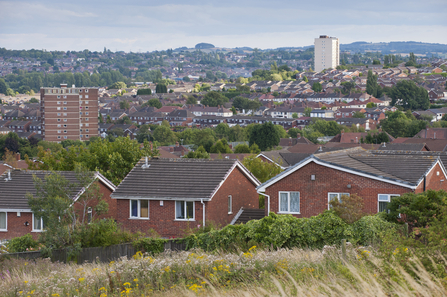Comments by the Chancellor, desperate for economic good news suggest a troubling shift towards short-term thinking over the long-term stability of the UK's economy and environmental commitments. Likewise, the Prime Minister seems set to abandon his previous support for net zero carbon emissions and has attacked the ‘whims of Nimbys.’
Net Zero is not the blocker to growth
It's ironic that the Chancellor has voiced support for airport expansions that would significantly increase carbon emissions whilst severe storms batter Northern Ireland and Scotland, and wildfires continue to devastate Los Angeles. Science is clear that climate change drives more extreme weather events, yet the UK Government appears willing to add fuel to the fire even as the effects at home become increasingly evident.
The expansion of airports is questionable from both economic and environmental perspectives.
The Climate Change Committee has emphasised the need for a well-managed, coherent framework for aviation expansion, but these proposals fall short and are unlikely to yield substantial economic benefits. Some studies even show airport expansion could actively harm growth. Instead, they risk exacerbating existing regional inequalities between north and south whilst undermining the UK's legally binding climate change targets.
Restoring our natural environment is key to achieving net zero and not just valuable for the wildlife we work to protect. Restoring natural habitats - such as seagrass meadows - draws down carbon and reduces economic damage from severe weather events, such as floods and storms, which are becoming more frequent and intense due to climate change.



